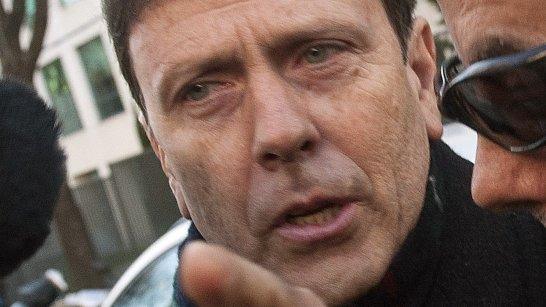Operation Puerto: Blood bags in Spanish cycling doping case to be handed over
- Published
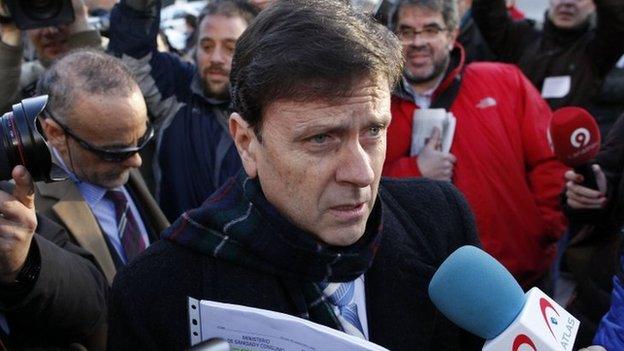
Dr Eufemiano Fuentes was at the centre of the doping scandal
Blood bags used as evidence in a major Spanish doping scandal must be handed over to authorities for investigation, a Madrid court has ruled.
The announcement comes 10 years after Operation Puerto revealed a doping network involving some of the world's top cyclists.
Police seized 211 coded blood bags from the clinic of Dr Eufemiano Fuentes.
They must now be given to the World Anti-Doping Agency, cycling bosses and the Italian Olympic Committee.
A judge had ordered the destruction of the bags following the conclusion of the court case against Fuentes in 2013.
But a number of sporting and anti-doping authorities appealed against that decision.
Tuesday's ruling - more than three years on - means they will now have access to the bags, which it is believed could contain further evidence of doping.
The appeal judges said they were overturning the earlier decision to destroy the blood bags to help the "fight against doping, which undermines the essential ethical value of sport".
"We are dismayed that it took so long to receive the decision but we will now partner with the other parties that have been granted access to the blood bags, to determine our legal options vis-à-vis analysing the blood and plasma bags," World Anti-Doping Agency (Wada) director general, David Howman, said.
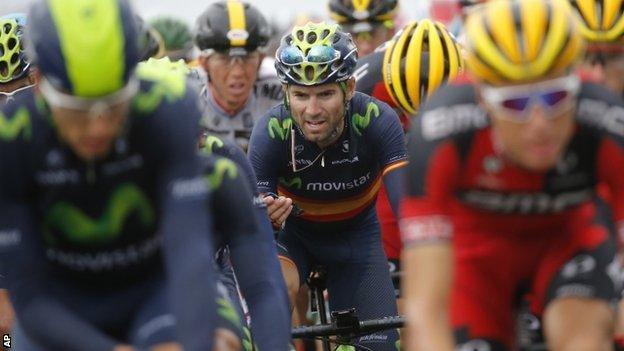
Spanish rider Alejandro Valverde (centre) was among those suspended
More than 50 cyclists were originally linked to the case.
Among those eventually suspended were former Tour de France winner Jan Ullrich, Spanish Vuelta champion Alejandro Valverde and Ivan Basso, who later confirmed that his blood was among the frozen samples found.
Fuentes also worked in other sports and the new ruling raises the potential for the identities of additional athletes to be revealed.
The sports doctor was given a suspended one-year prison sentence for endangering public health, but that sentence was later overturned.
Ten years ago, police seized the blood bags from the Madrid clinic of Fuentes as part of Operation Puerto.
The bags belonged to athletes who received treatments from the doctor, though he has refused to confirm whether the anonymous athletes were doping or not.
In April 2013, Judge Julia Patricia Santamaria ruled the blood bags should be destroyed, a decision which provoked widespread criticism.
Since then, the bags have been stored in an anti-doping laboratory in Barcelona.
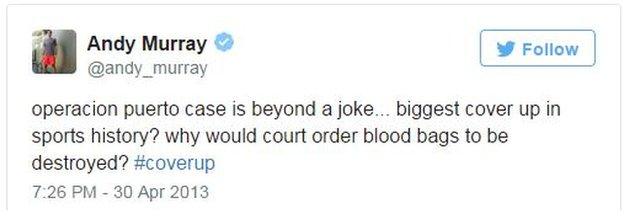
British tennis number one Andy Murray on Twitter in April 2013
- Published17 May 2013
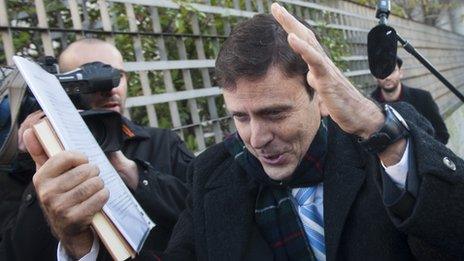
- Published10 May 2013

- Published1 May 2013
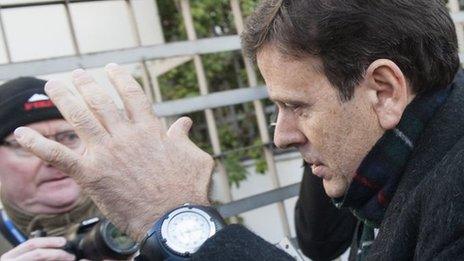
- Attribution
- Published30 April 2013
